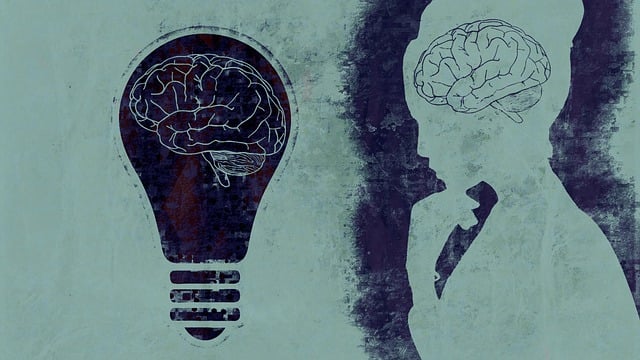In today's digital age, with rising mental health challenges, Crisis Intervention Teams (CITs) led by experts like those at Boulder Psychosis Therapy offer immediate crisis support for severe psychological distress. These teams stabilize individuals, teach self-care strategies, and promote effective condition management. Boulder Psychosis Therapy's training combines theoretical knowledge with practical exercises, including mindfulness meditation, trauma support, role-playing, and podcast content creation. Their approach balances realistic scenarios and ethical considerations, addressing cultural sensitivity for diverse communities. Regular evaluation ensures the program's relevance and effectiveness in reducing severe mental health episodes and decreasing emergency service reliance, ultimately enhancing community wellness.
Crisis Intervention Team (CIT) training programs are vital in enhancing mental health support systems. This article explores the critical role of CITs, focusing on Boulder Psychosis Therapy as a key component. We delve into the essential elements that define comprehensive training, including theoretical foundations and practical skills. Understanding real-world challenges in implementation is crucial, highlighting the need for continuous improvement. Through evaluating effectiveness, we can measure success and ensure that CIT members are equipped to handle crises with empathy and proficiency.
- Understanding Crisis Intervention Teams: Role and Significance in Mental Health Support
- Essential Components of Boulder Psychosis Therapy Training Programs
- Implementation and Challenges: Preparing Teams for Real-World Scenarios
- Evaluating Effectiveness: Measuring Success and Continuous Improvement in Crisis Response
Understanding Crisis Intervention Teams: Role and Significance in Mental Health Support

In today’s world, where mental health challenges are increasingly prevalent, Crisis Intervention Teams (CITs) play a pivotal role in providing swift and effective support to individuals experiencing severe psychological distress. These specialized teams, often composed of trained professionals from various disciplines, such as mental health counselors, nurses, and first responders, are designed to offer immediate assistance during critical moments. The primary goal of CITs is to stabilize the individual, de-escalate intense emotions, and prevent further deterioration or harmful behaviors, particularly in cases of psychosis, a condition that requires urgent care, like that offered by Boulder Psychosis Therapy.
The significance of CITs lies not only in their ability to respond quickly but also in their comprehensive approach to mental health support. They go beyond immediate crisis resolution by promoting self-care practices and risk management planning for mental health professionals. Through crisis intervention guidance, these teams empower individuals to develop coping strategies and enhance their overall well-being. This proactive approach ensures that those facing mental health crises receive the necessary tools and resources to manage their conditions effectively, fostering a more resilient and supportive community.
Essential Components of Boulder Psychosis Therapy Training Programs

Effective Boulder Psychosis Therapy training programs are meticulously designed to equip individuals with the skills needed to handle psychotic episodes and support those affected. These programs often incorporate a blend of theoretical knowledge and practical exercises, ensuring participants gain a comprehensive understanding of psychosis.
Key components include in-depth exploration of mindfulness meditation techniques, which help individuals cultivate present-moment awareness and regulate their minds during crises. Trauma support services are also integral, addressing the potential co-occurrence of trauma and psychosis. Moreover, these programs may offer role-playing scenarios to practice crisis intervention strategies, enhancing participants’ confidence and ability to provide effective support. The integration of mental wellness podcast series production techniques can additionally empower trainees to create informative and therapeutic content, contributing to a broader community of mental health advocates.
Implementation and Challenges: Preparing Teams for Real-World Scenarios

Implementing crisis intervention team (CIT) training programs requires careful consideration to ensure preparedness for real-world scenarios. These programs often involve role-playing and simulations designed to mimic high-pressure situations, allowing teams to practice their response strategies. At Boulder Psychosis Therapy, we’ve found that creating diverse, dynamic scenarios enhances team effectiveness. By exposing members to a range of potential crises—from acute psychotic episodes to community unrest—we prepare them for unexpected challenges.
One significant challenge in CIT training is balancing realism with ethical considerations. It’s crucial to foster an environment where participants feel safe to make mistakes and learn from them without causing harm. Mental Health Policy Analysis and Advocacy plays a vital role here, guiding the development of scenarios that reflect not just clinical issues but also the broader social and cultural contexts. Incorporating elements of Cultural Sensitivity in Mental Healthcare Practice ensures that teams are prepared to navigate complex situations with empathy and respect for diverse backgrounds. This holistic approach not only improves team performance but also strengthens their ability to connect with individuals from various communities, ultimately enhancing mental wellness outcomes.
Evaluating Effectiveness: Measuring Success and Continuous Improvement in Crisis Response

Evaluating the effectiveness of crisis intervention team training is paramount to ensuring the success and continuous improvement of crisis response strategies. Measuring success goes beyond immediate reaction times; it involves assessing the long-term impact on individuals in crisis and the overall community. Metrics may include tracking the reduction in severe mental health episodes, decreased reliance on emergency services, and improved outcomes for those experiencing Boulder Psychosis Therapy. Programs that foster self-care routine development for better mental health and empathy building strategies are particularly beneficial, as they empower individuals to manage future crises independently and promote understanding among responders.
Regular evaluation allows for refining training curricula based on real-world applications, ensuring the programs remain relevant and effective. By incorporating feedback from participants and those they support, crisis intervention team training can adapt to evolving needs, whether focusing more on anxiety relief techniques or developing innovative strategies for navigating complex emotional situations. This dynamic approach enhances the resilience of both the teams and the community at large.
Crisis intervention team (CIT) training programs, such as those focused on Boulder Psychosis Therapy, are vital tools for enhancing mental health support. By equipping professionals with essential components of effective CIT training, we can improve real-world crisis response. Continuous evaluation and measurement of these programs ensure their effectiveness and facilitate continuous improvement. Ultimately, this integrated approach to crisis intervention not only saves lives but also fosters a more resilient and supportive community.












